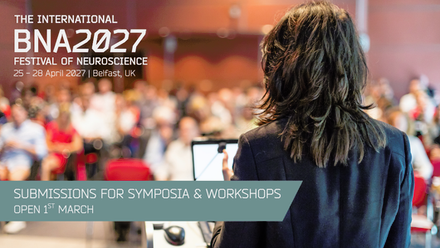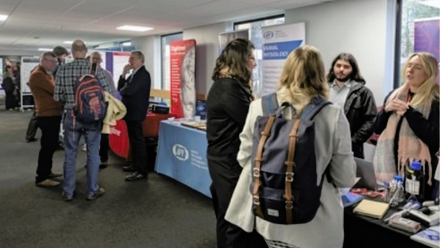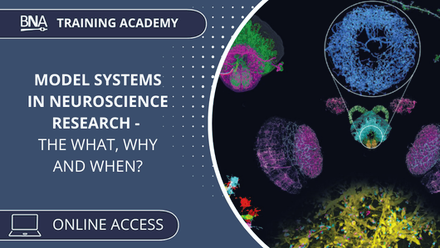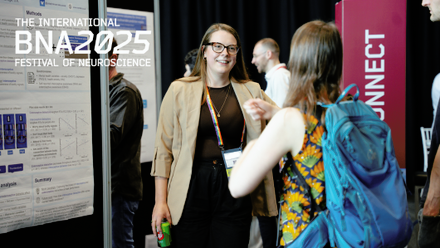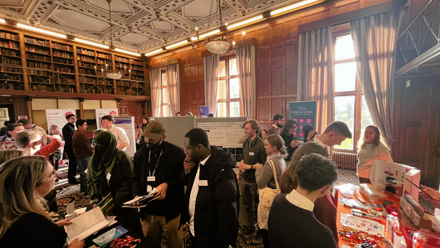Brighton BNA Local Group hosts cross-institutional conference to support undergraduate careers
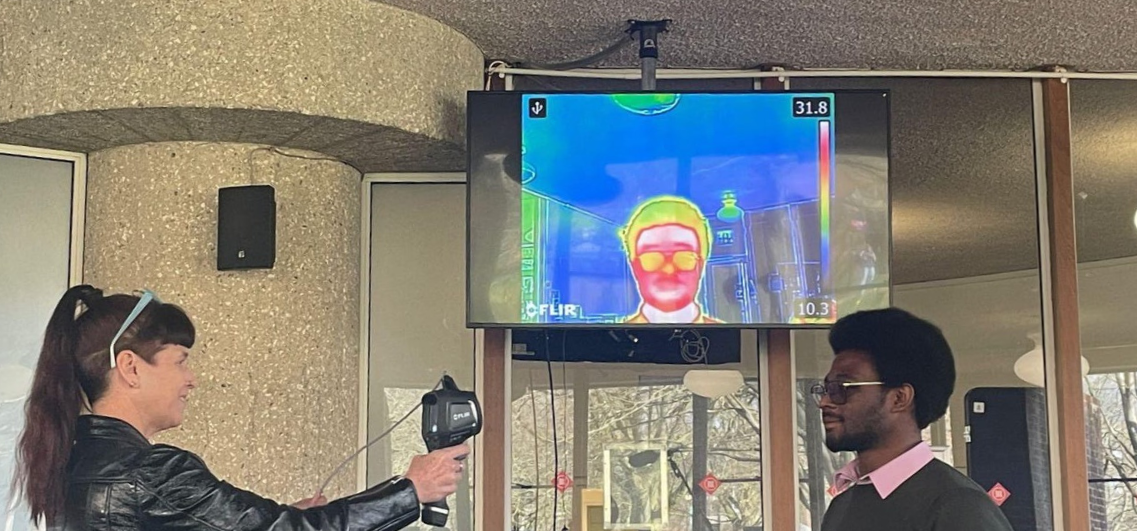
Prof. Gillian Forrester demonstrates her thermal imaging research tools at Sussex's student conference
For many students, the gap in accessibility regarding research conferences and symposiums is a huge barrier to career development, networking, and extending their learning. While there is a strong interest within the student body to engage with such events, they are rarely accessible to students not yet conducting doctoral research. With this in mind, the Brighton area BNA Local Group – in a collaboration between BNA members based in the University of Sussex, Brighton and Sussex Medical School and the University of Brighton – decided to host a mini-conference on the Sussex campus, targeted at undergraduate students but free to attend for anyone from their institutions. The heavy lifting was done by the University of Sussex undergraduate Neuroscience Society (NeuroSoc), with support from the Brighton area's BNA Local Group Representatives, other staff, and the Sussex Neuroscience research centre.
Planned for 14th March 2025 to mark Brain Awareness Week, and with a focus on brain health and wellness, the day was specifically designed to give students access to the opportunities that they weren't usually able to take advantage of. The mini conference, entitled ‘NeuroNurture: Promoting brain health through science’, consisted of talks from University researchers as well as stalls run by from students, staff and external organisations. With attendees invited from three of the area's biggest teaching centres, the format allowed students to network with each other and with more senior researchers across their local neuroscience community. The theme was chosen to increase awareness of contemporary research in the field of mental health, a topic especially pertinent to students as current world events combine with academic and work-related stress to lead to a significant decline in wellbeing.
The introductory speech by the area's Local Group Representative – Dr. Ruth Staras – was followed by our first research talk by Dr. Maria Hadjimarkou from the School of Psychology on ‘Promoting Brain Health through Sleep’. This in turn was followed by a talk from Dr. Doran Amos from School of Life Sciences on the debate surrounding therapeutic usage of psychedelics for depression and associated mental health conditions. PhD student Danny Nacker from the Sussex Centre for Consciousness Science then went on to talk about multimodal neural entrainment in computational neuropsychiatry. Finally, the final talk of the day was given by Prof. Gillian Forrester on measuring stress using facial blood flow levels – accompanied by an exciting live demonstration of her thermal imaging research.
Along with the exciting talks, the event also boasted also had a wide range of engaging stalls from organisations including Narcotics Anonymous, the Sussex Wellbeing Team, and the Sussex Careers team, along with an electroencephalography demonstration from Dr. Alex Stuart and an interactive student-run stall on the medical uses of psychedelics.
This event was the first of its kind in the area, and accordingly was hugely popular among local students and staff alike. Feedback obtained during and after the event further emphasised the undergraduate student interest in accessible academic conferences and research talks, an interest which we plan to build into the next projects that the Brighton area BNA Local Group undertakes. As a result of these successes, NeuroSoc also aims to host a similar mini-conference as an annual tradition, allowing students to connect with researchers in a dynamic environment outside the formal structures of our taught curriculum.
If you could change one thing about neuroscience in your local area, what would it be? Do your peers and others across the different institutions in your area feel similarly? By joining your BNA Local Group and working with your Local Group Representatives to devise a strategy and secure project funding, together you can drive local change, and take collective ownership over the future of neuroscience where you are.

